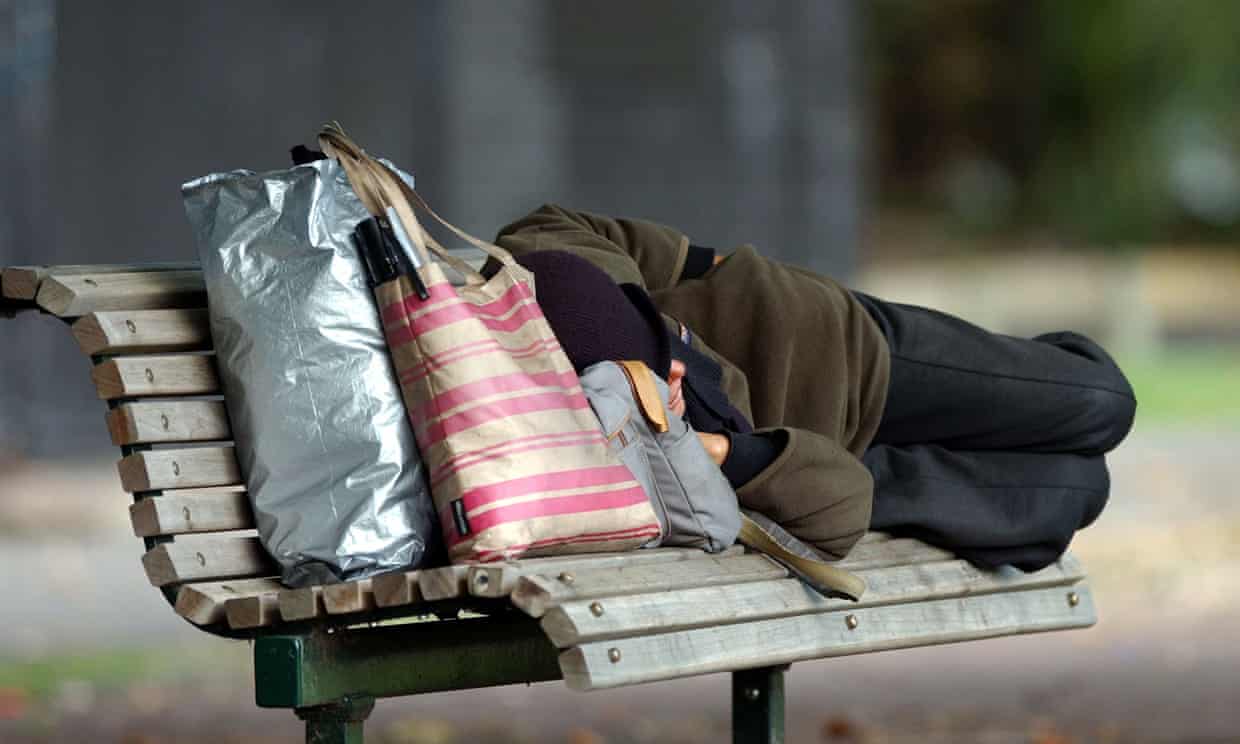
New Zealand
New Zealand sheltered its homeless during Covid-19 – but can it last?
Labour-led government has pledged $100m to keep 1,200 motel rooms available for the homeless for a year but obstacles to cementing gains remain
by Charlotte Graham-McLayIt was an unexpected outcome of the strict lockdown to curb the spread of Covid-19 in New Zealand: after one month rough sleeping appeared to have been all but eliminated in the country. Advocates said it was the closest New Zealand had come in modern times to ensuring everyone had shelter, with only “a handful” of people living on streets in the country.
“People who have never been housed are now temporarily in housing,” said Chris Farrelly, the chief executive of Auckland City Mission, a social services charity in New Zealand’s largest city. “They’re saying to us, which they’ve never said before, ‘Please, can you keep me in this place?’”
The government has expressed similar optimism that those who have been staying in motel units since New Zealand’s national shutdown began on 25 Match will not be forced back onto the streets. An extra $100m has been pledged to keep 1,200 motel rooms available for the homeless until next April and this month’s Budget included a promise to build 8,000 more social housing places.
The year-long motel booking gave the government “the breathing room that we needed to bring on the transitional housing places that we’d announced” as part of an action plan on homelessness in February, Megan Woods, the housing minister, told the Guardian.
She had been adamant that “something for everyone” would be found during the lockdown.
“We all had a shared determination that we weren’t going to come out of lockdown and have people just put back onto the street again,” she said, adding that some of those housed had “really complex needs” and advocates had been trying to find them homes “for years” without success.
But in a country facing a severe housing shortage and affordability crisis – where home construction is slow work and the public housing waiting list reaches a new high each quarter – the social sector has warned of obstacles to cementing progress made during the most stringent weeks of the Covid-19 shutdown.
“I just don’t know how it’s going to be done,” said Campbell Roberts, a social policy spokesman for the Salvation Army, referring to the 8,000 new public housing places promised in the Budget. “All the housing projects went on hold during the lockdown, so we’re now behind in those, and construction has been slow to this point because of social distancing.”
He added that many people would not fare well staying for so long in motels, which were “fine for a holiday, for three or four days,” he said, but not for months at a time.
The coronavirus pandemic has provided several countries an unusual window of opportunity to tackle homelessness as governments require citizens to physically distance themselves from others. In Britain, as in New Zealand, rough sleepers were housed in hotels during lockdowns – and the government has pledged 3,300 new housing places for them within 12 months, although advocates in the UK said many details had yet to emerge.
In the United States, rough sleepers have bedded down in tents and in car parks as their numbers swelled, and Australia saw a “noticeable increase” in those living on the streets in Sydney, advocates said, despite a state funding package to address the matter.
In New Zealand, housing affordability was expected to feature as an election-year issue before the pandemic struck; Labour was forced to “reset” its flagship home-building policy last September in an admission that it had not worked as planned.
In March, the ballooning waiting list for public housing hit a new record high – more than 16,000 people, a 47% increase since the same month in 2019. In surveys that compare house prices with income, several New Zealand cities consistently rank among the world’s least affordable.
A 2018 report suggested 1% of New Zealand’s population of 5 million is homeless, the highest of any country among wealthy OECD nations. However, definitions of homelessness vary by country, and New Zealand’s includes people living in overcrowded accommodation, couch surfing or sleeping in their cars, as well as those in temporary or emergency accommodation.
Woods said households known to be at risk of overcrowding had also been visited by social services, and some had taken up places in motels. Figures provided by her office showed nearly 500 of the 1,400 people housed during lockdown were rough sleepers, while more than 350 others had been living in overcrowded accommodation. Close to 200 had been sleeping in their cars.
Those in the social sector urged MPs to think more creatively about speeding up the building of new properties – including an investment in prefabricated housing, which is rare in New Zealand, or a progressive home ownership scheme.
Farrelly, from Auckland City Mission, told a parliamentary committee in April that there would be “a new wave of immense poverty in this country” due to the pandemic, and “courage” would be required to address it.
He and other advocates said the near-elimination of rough sleeping had scuppered the idea that it was simply too difficult to find homes for some.
“There’s a myth around this country that a lot of these people don’t want to be housed, they choose to be homeless,” he said. “I actually challenge that.”